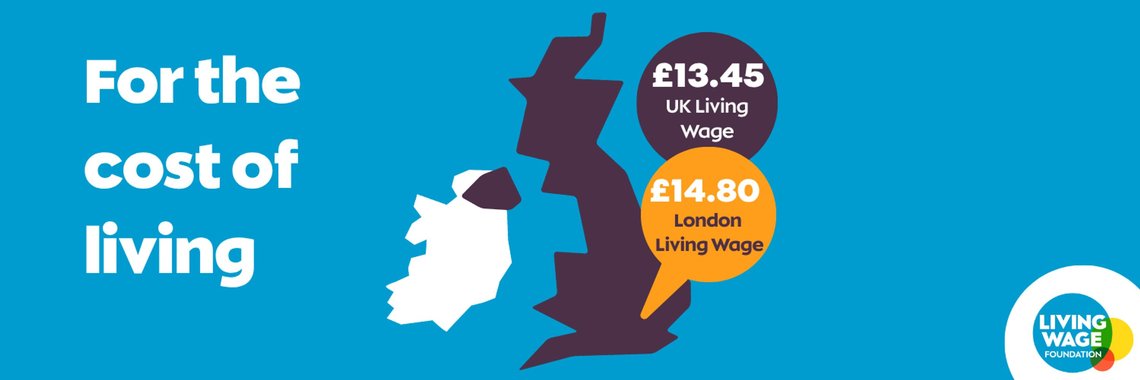
Almost half a million workers are getting a pay boost, after the Living Wage Foundation announced the Real Living Wage will rise by around 7%.
From April 2026, the new rates will be:
- £14.80 an hour in London (up 95p)
- £13.45 across the rest of the UK (up 85p)
This will help the many thousands of Londoners employed by Real Living Wage accredited employers to keep up with rising living costs.
But not everyone earns the Real Living Wage - which is a voluntary scheme. Many workers are on the 'National Living Wage' instead, which is set by the government.
With all these different 'Living Wages', it can be easy to get confused. Here we break down the different types, and explain why employers should pay everyone at least the real Living Wage.
The National Living Wage - the legal minimum
The National Living Wage is the legal minimum employers have to pay anyone aged 21 and over.
Right now, it’s £12.21 per hour everywhere in the UK. There's no London weighting, despite the higher cost of living in the capital.
It's set by the government, based on a number of factors - such as what they think the labour market can handle - rather than just focusing on what people need to live on.
The real Living Wage - based on the cost of living
The Real Living Wage, on the other hand, is worked out based on how much people really need to get by.
It’s voluntary, not a legal requirement, but more than 15,000 employers have chosen to pay it – from small charities to local councils to major firms like Aviva and, recently, Uniqlo.
The Real Living Wage is independently calculated each year by the Living Wage Foundation to reflect the real cost of essentials like rent, food, travel and energy.
Right now, it’s set at:
- £13.85 in London, an
- £12.60 across the rest of the UK.
From April 2026, those rates will rise to £14.80 (London) and £13.45 (rest of the UK), helping wages keep pace with rising prices.
Comparison table - National Living Wage and Real Living Wage
Why is it important to pay the real Living Wage?
Paying the real Living Wage is the single most important thing employers can do to help lift people out of poverty. It's the only wage rate that reflects the cost of living.
The real Living Wage helps to lift people out of poverty, enabling people to have choices, live with dignity and feel included in society.
At least half a million people in London are paid less than the London Living Wage. In-work poverty remains all too common across our capital city.
By getting accredited as a Living Wage employer, organisations show that they want to go beyond the legal minimum to help tackle this problem. They also become part of a fantastic movement of people doing business the right way.
Find out more about the Living Wage on the Living Wage Foundation's website.